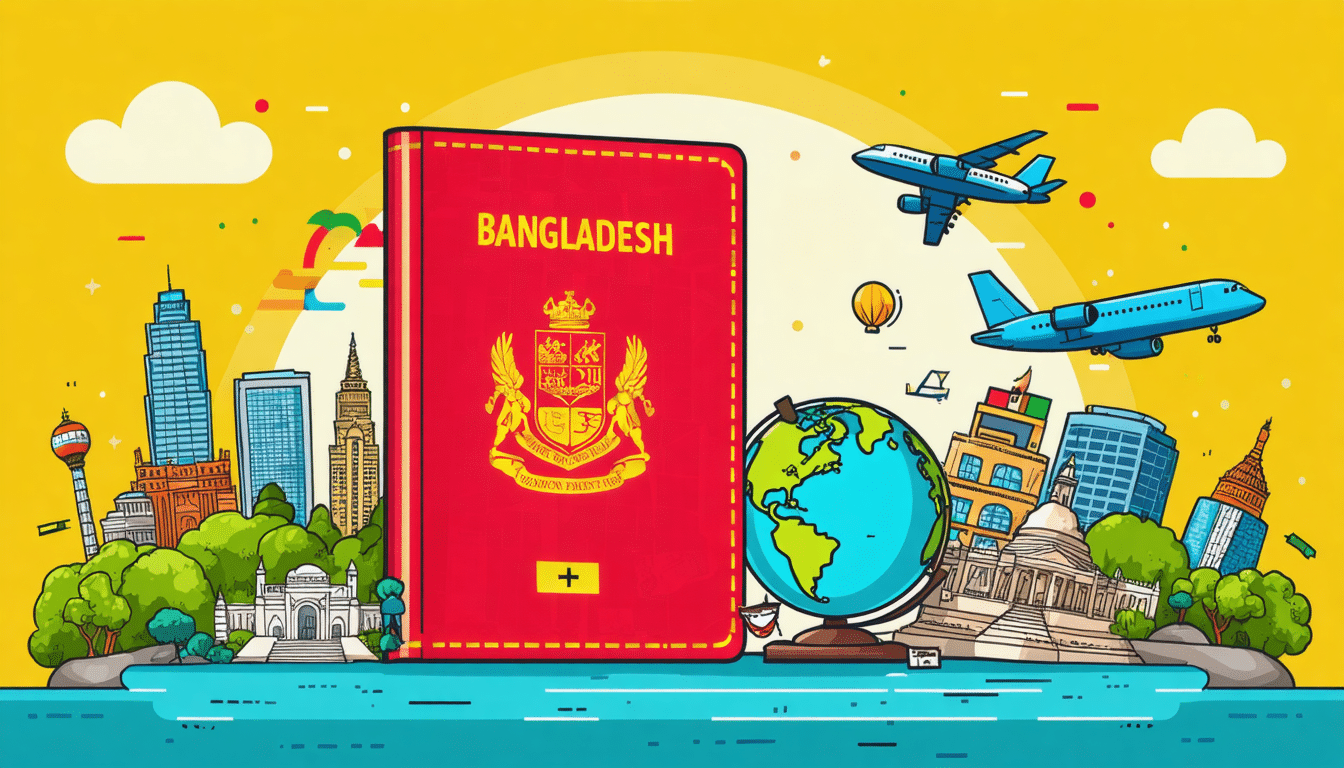Bangladesh imposes a strict restriction on travel to Israel, an intense reaction to the situation in Gaza. The reintroduction of the mention “except Israel” on passports reflects a determined political will. Protest movements are forming, with thousands of demonstrators expressing their solidarity with Palestine.
This decision, made by the interim government led by Muhammad Yunus, marks a significant rollback after the removal of this clause in 2021. By reinstating this inscription, Bangladesh reinforces its commitment to the Palestinian cause while declaring its firm opposition to Israeli actions. An atmosphere of tensions prevails, demonstrating the weight of geopolitical stakes in this region.
| Key Point |
|---|
| Dhaka imposes a new travel restriction to Israel. |
| The clause “except Israel” has been reintroduced on Bangladeshi passports. |
| This decision comes from the interim government led by Muhammad Yunus. |
| The Ministry of the Interior issued a directive for the return of this clause. |
| The reintroduction follows a public outcry against Israeli actions. |
| Demonstrations in support of Palestine have recently occurred in Dhaka. |
| Before 2021, passports always contained this restrictive mention. |
| The passport remains valid for all countries except Israel. |
| Legal sanctions are being considered for attempts to travel to Israel. |
| Bangladesh does not officially recognize Israel and supports a Palestinian state. |
Reintroduction of the Passport Clause
The interim government of Bangladesh, led by Muhammad Yunus, has decided to restrict travel to Israel. This measure resonates with public outrage against Israeli actions in Gaza. The Ministry of the Interior has ordered the reintroduction of the mention “this passport is valid for all countries of the world except Israel” on the passports of its citizens. This clause was removed in 2021 by Sheikh Hasina’s government, during a time marked by increasing international pressure on Israel.
Historical Context of Passport Policy
Previously, Bangladeshi passports contained a mention explicitly prohibiting travel to Israel. This text was removed under Sheikh Hasina’s administration, which claimed to align with international standards. However, this did not change the country’s position regarding Israel. The absence of this clause allowed citizens to travel to Israel via other countries, provided they obtained the appropriate visa.
Government and Authorities’ Reaction
On April 7, the Ministry of the Interior reacted to rising tensions. Nilima Afroze, Undersecretary of the Security Services Division, stated to the media that the directive for reintroduction had been issued to reaffirm the country’s policy. Foreign Minister AK Abdul Momen had planned legal sanctions against those attempting to travel to Israel without the necessary approval.
Public Mobilization and Protests
The government’s decision coincided with massive protests that took place in Dhaka. Thousands of citizens expressed their anger against Israeli actions in Gaza. Participants waved Palestinian flags, chanting slogans such as “Free, free Palestine“. The rallies were held in landmark locations, such as Suhrawardy Udyan. Political bodies, including the Bangladesh Nationalist Party, expressed their support for these mobilizations in solidarity with Palestine.
Diplomatic Relations between Bangladesh and Israel
Bangladesh, as a majority-Muslim country, remains firm in its position against establishing diplomatic relations with Israel. Public opinion opposes any form of legitimization of Israeli actions in Palestine. The official support of the government for Palestinian independence remains unchanged. This dynamic highlights the tensions within Bangladeshi society regarding the Israeli-Palestinian conflict.
Implications of This Passport Policy
The reintroduction of this clause on passports only deepens the divide between Bangladesh and Israel. It is clear that these changes aim to protect national identity and assert solidarity with Palestine. This decision also impacts international perceptions regarding human rights and justice. Through such policies, Bangladesh demonstrates its commitment to a peaceful resolution of the conflict in the Middle East.
For more information on passports and their implications, you can check this resource: Explore the world: which passport offers the best access to countries?.









